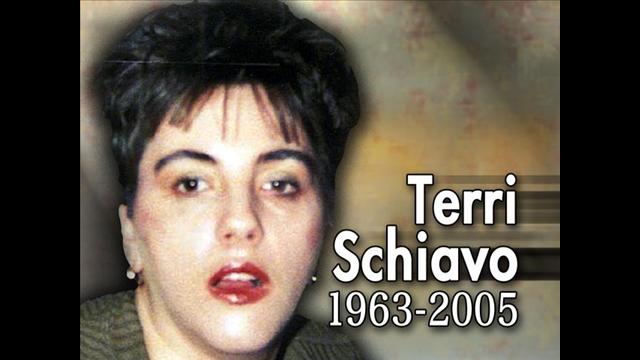It was nine years ago, March 18, 2005, that my sister, Terri Schiavo’s feeding tube was removed by order of Pinellas County Florida Court Judge, George W. Greer. It was by Greer’s order that Terri would slowly die by way of starvation and dehydration. It took almost two-weeks.
Since Terri’s horrific death, the non-profit organization established by my family, the Terri Schiavo Life & Hope Network, works every day doing what we can to educate the public, raises the desperately needed awareness on this widely misunderstood issue of euthanasia, and more importantly, helps families that contact us. The vast majority of families who do reach out to us are faced with situations where their loved ones are in jeopardy of having their life sustaining treatment denied.
 What has become painfully obvious is that it seems like almost every day, more examples of families’ medical rights are being denied when it comes to decisions they are making for their loved ones.
What has become painfully obvious is that it seems like almost every day, more examples of families’ medical rights are being denied when it comes to decisions they are making for their loved ones.
Indeed, we receive calls similar to what our family experienced – a domestic dispute over the care of a family member. However, more and more, we are getting calls from people who are fighting physicians, ethic committees, or the health care facilities where their loved ones are being treated.
It can even go as far as, if you can believe it, families having their loved ones stripped away from their care by the hospital, losing complete custody.
When this does happen, there appears to be a certain pattern that begins the process.
First, the hospital physicians, nurses or even the staff will create or exaggerate a situation involving the family, most times without any real evidence, or they will fault the parents or loved one who is the caregiver with some type of mishap with the patient.
Often times what follows is the family member(s) who were making medical treatment decisions are vilified, or accused of being the problem. This gives the hospital a reason to intervene and subsequently take action to deem the family incompetent as the caretaker.
The hospital can then go as far as restricting visitation rights, or completely stopping any family member from visiting their loved one, claiming that they are a “threat” to the care of the patient.
The hospital can then go to court in order to gain control of the patient by requesting that a guardian be appointed or even the hospital itself, in place of the family members who were caring for their loved one.
The family who was once in the position of taking care of their loved one is now on the outside looking in – having no legal rights or any ability to help or even visit them.
If you think this cannot happen, then you haven’t heard of three cases currently taking place where the family has been removed as the care givers of their child and/or spouse. The case of Justina Pelletier in Massachusetts, Bret Bohnin in Alaska, and the Gary Harvey case in New York. All you need to do is look them up.
In each situation, the facility contends that these patients were not being properly cared for by their family member and as a result, the patients were removed from their custody. Although these cases have their differences, there is one common denominator. Despite the reasons specified, it appears that in each instance proper care was being given. And in all of these situations, the care of their loved one has now been put in hands of strangers.
There have been countless warning signs with the state of our health care system and its perilous direction when it comes to caring for those who are unable to speak for themselves. Perhaps much of it started with the death of my sister, Terri.
It is because of this that over the next two-weeks, Terri’s Life & Hope Network website will post stories of the events that occurred on each one of those horrific days of Terri’s inhumane death. Not only to remember Terri, but also to keep in mind the countless people who, as we speak, are suffering slow, agonizing deaths in hospices, nursing homes, and hospitals in America and around the world. Not to mention that every one of us needs to understand that no longer are we the ones who will be making medical decisions for our loved ones if we ever find ourselves in a situation where a hospital decides it knows better.







